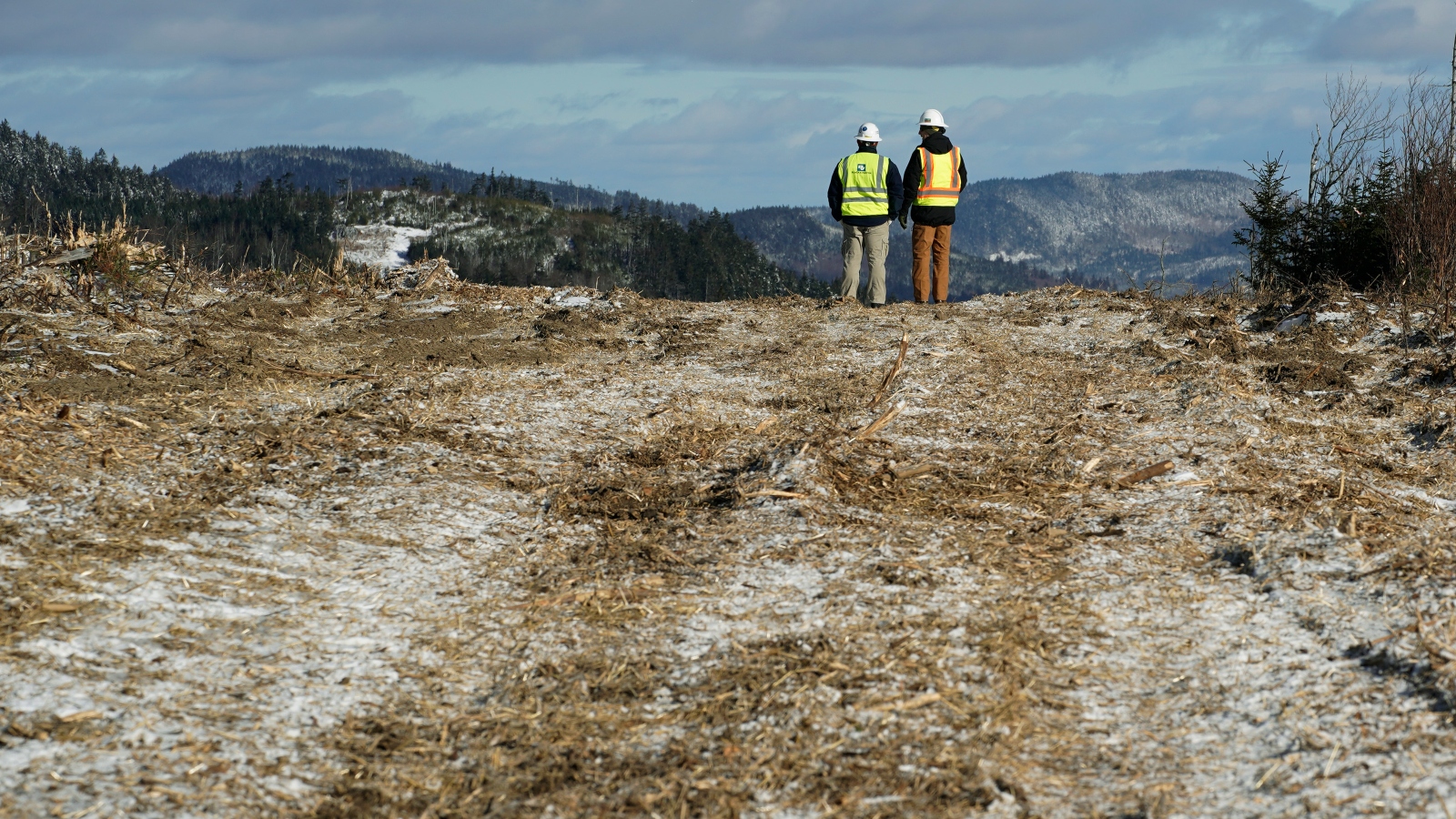A stalled transmission line project that Maine voters tried to kill in 2021 has been brought back to life by a state court. The ruling gives climate-conscious state governments across New England a fresh chance to significantly decarbonize the region’s electrical grid, which is sustained by oil and natural gas.
Near the end of last month a jury unanimously ruled that the so-called New England Clean Energy Connect project could move forward after being stalled for more than a year, ending a legal limbo that began when Maine voters rejected the project in a 2021 referendum.
The $1 billion project would deliver around 1,200 megawatts of power from hydroelectric dams in Quebec to the New England states, satisfying around 8 percent of typical demand on the region’s grid. The project has been progressing in fits and starts since 2018, when the Massachusetts state government backed it as the best way to reach that state’s ambitious clean-power goals.
“At the end of the day, clean energy won,” said Joe Curtatone, president of the Northeast Clean Energy Council, a business association that represents renewable power companies, including those involved in Clean Energy Connect. “This makes [meeting our climate goals] a lot more likely and achievable. These are the kinds of big leaps we need to take after decades of minimal progress.”
The jury decision is the latest in a string of state and federal regulatory victories for the embattled project. Avangrid, the company building the transmission line, said on an earnings call last week that it will know by midyear when it can resume building the project, citing a need to renew permits. The company had just started clearing a path for the line at the time of the 2021 referendum, and it initially planned to bring the wires online by late 2022. The company hasn’t given a new timeline for finishing them.
Avangrid will also undertake about $200 million in upgrades to existing infrastructure in the New England grid, while adding customer incentives like rural broadband upgrades and ratepayer rebates, according to Curtatone. These upgrades, in addition to the cheap hydropower from Quebec, should mean widespread cost savings for New England residents.
“In addition to being reliant on fossil fuels, the grid is a bit of a fossil itself,” he told Grist. (Both Avangrid and Hydro-Quebec, which owns the hydropower dams, are members of the Northeast Clean Energy Council.)
Even though several New England states have passed ambitious climate laws in recent years, the region still relies on natural gas for about half its power needs. Unlike the rest of the country, the region also burns significant amounts of oil to generate electricity and heat. This tends to happen during periods of high demand, such as the cold snap at the end of December, which saw oil become the grid’s largest single fuel source for a period of a few days. (Fuel oil is around 30 percent more carbon intensive than natural gas.)
Like a nearby transmission project that runs from Canada through upstate New York, the Maine project has faced criticism on several fronts. Landowners and environmentalists have argued that it would destroy valuable acres of forest, and Indigenous activists have also argued against importing power from Hydro-Quebec, whose dam projects are on unceded First Nations land. The electrical utility NextEra, which owns multiple nuclear power plants in New England, also spent millions of dollars campaigning against the project during the 2021 referendum.
The trial in Maine’s Consumer and Business Court last month didn’t address any of these concerns. Instead, the jury considered only whether Avangrid had acted in good faith when it started constructing the project in 2021 or whether the company had only been trying to give itself a legal shield against the results of the referendum. The jury deliberated for only three hours before delivering a unanimous verdict in Avangrid’s favor.
Experts say that building more transmission capacity is one of the most essential steps toward decarbonizing the power sector, but new connection lines face significant obstacles. Among the most significant is a mismatch between benefits and costs. Residents across New England will benefit from a surge of cheap, clean energy, but only Maine residents will deal with the hassle of a new power line on their turf. This dynamic has played out all over the country as private landowners and federal agencies protest the rollout of new wires, citing a range of concerns from the plight of endangered species to aesthetic disgust.
The Maine project itself was a kind of Plan B for Massachusetts after New Hampshire regulators killed a transmission line from Quebec through the latter state’s White Mountains. And the Bay State only looked to Canada as a source of new imported power after ambitious offshore wind projects collapsed amid blowback from coastal homeowners and concerns about price.



